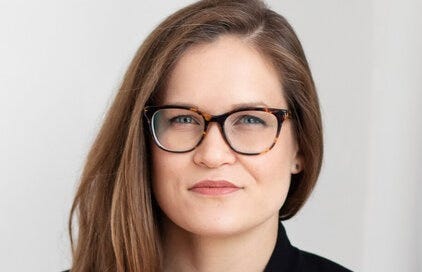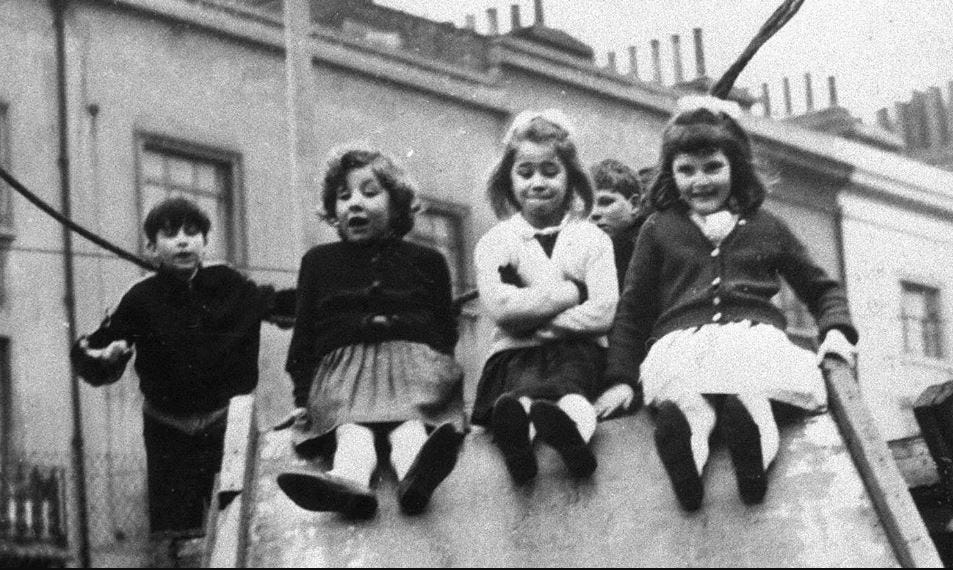Amy Berg (Oberlin College), "Do Good Lives Make Good Stories?"
Forthcoming in Philosophical Studies
During the third season of the CW musical dramedy Crazy Ex-Girlfriend, Rebecca Bunch has just made one of the worst romantic blunders in a show that’s mostly about making romantic blunders. As she stumbles out of a house that isn’t hers in the middle of the night, the music starts up:
So this is the end of the movie (whoa, whoa, whoa)
But real life isn’t a movie (no, no, no)…
Because life is a gradual series of revelations
That occur over a period of time
It’s not some carefully crafted story
It’s a mess and we’re all gonna die
If you saw a movie that was like real life
You’d be like, “What the hell was that movie about?”
It was really over the place
Life doesn’t make narrative sense
That stuck with me until, later on, I did see a movie that was like real life. During the first winter of the pandemic, I finally got around to watching the Up series of documentaries. You may already be familiar with these, but in case you aren’t: in 1964, a British TV crew filmed a handful of seven-year-olds from a cross-section of British society, following them around home, school, and playtime and interviewing them about their future plans. The documentary was supposed to be a one-off about the British class system, but it became something bigger, stranger, and more complex when crew member Michael Apted decided to continue the project, checking in with each of the original children every seven years.
It’s fascinating. Some lives turn out more or less how you would expect: the plummy-accented boy who’s shown fox-hunting at 21 goes off to Oxford and becomes a barrister. Others are a complete surprise: the Yorkshire country boy who moves to Wisconsin to work as a nuclear physicist; the vivacious seven-year-old who spends most of his 20s and 30s homeless, then gets into politics later on, who eventually marries, but the marriage doesn’t seem to last. Some lives are better, and some are worse, but none of them fit into a simple trajectory. Even to plot the good lives as a narrative arc misses what’s actually happening at each stage of the participants’ lives. Nick the nuclear physicist’s fusion dreams go bust, but doesn’t he still make good on his intellectual promise as a teacher and scholar? When he’s seven, Bruce wants to become a missionary, and he goes on to teach in Bangladesh and in poor parts of London—should we be relieved for him or disappointed that he seems much happier when he ends up working at the same private school where Stephen Hawking was a student? Even John the fox-hunter, one of the most easily caricatured participants, turns out to have been a scholarship kid with a widowed mother. It was really all over the place. Life doesn’t make narrative sense.
I’ve been thinking about this as I’ve been trying to get a new (-ish; I’ve been working on it for years—life is a gradual series of revelations that occur over a period of time) project off the ground, on the value of living a well-rounded life. It seems good to me to live a life where you do a lot of different kinds of things, in different ways, without planning for them all to come together in one central project. Occasionally the idea of being well-rounded surfaces in discussions of well-being, but it really should show up more often, since it’s so important to so many people. I’ve been working on how to make the case for its being a distinctive kind of good life with a distinctive kind of value.
At the same time, living a well-rounded life makes it harder for your life to have some other features that some philosophers have thought make lives go well. If you try a lot of different things, some of those aren’t going to pan out, at least not in the way you’d hoped; if some of your pursuits don’t connect to others, you have to figure out how to work through the friction between them. Maybe we can dismiss these as features of bad lives; it’s a mess and we’re all gonna die. But what the Up documentaries show us is that good lives go like this too; to base our assessments of good lives exclusively or even in large part on their narrative arcs abstracts away from what makes life worth living. If we try to turn our lives into good stories, we may find ourselves making choices that are bad for us: defining down our ambitions to where we know we can succeed, or exploring less of what life has to offer, or striving to achieve when it would be better for us to be content with amateurism.
So this is my paper. It’s called “Do Good Lives Make Good Stories?”, and it’s recently out in Phil Studies. The answer to the title’s question is, mostly, no, although, if you read it, you’ll see that the situation’s a lot more nuanced than that. I hope you like it.







Is trying to plan for ones idea of a "good life" (never mind that there is a a great general disagreement on what that standard would be, temporally or culturally) ever a good idea? Yes? No? Maybe? Sometime? Think Markov chain Monte Carlo methods of random sampling. Does one ever slip the economic, social, historical, familial, political, restraints on ones freedom of choice? Through much of human history this has not been the case. Perhaps trying a little of everything with no discernible narrative structure is a valid trajectory through the time line one has. (I'm speaking as a septagenarian nearing the end of his own time here.) Careers are fine, though they limit freedom; many limited stints at exclusively bending ones focus are fine too, though they limit depth of understanding...always there is a trade off, but equally always there is no final arbiter.. not even oneself. For ones own values can change through time also. Perhaps fundamental is first, exert as much control in creating a "good" life by ones own definition one can within the matrix of restraints imposed by neither being omniscient nor omnipotent (that raises the interesting question of what is a "good" life for a God?). And second: Try not to sleep through all of it. 🙂